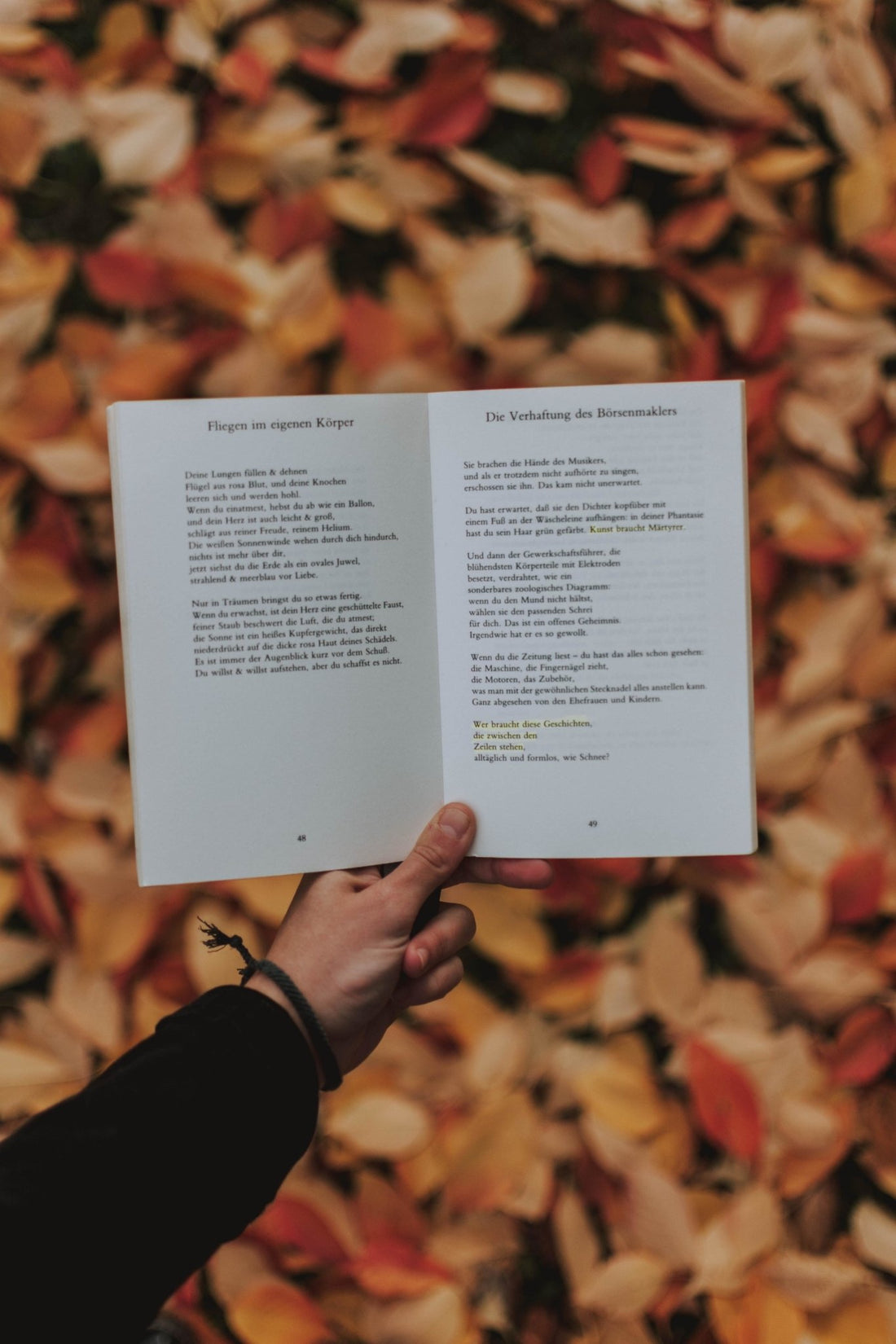
Poetry III - How to Write a Poem
Share
I must admit, I might have been misleading you just a bit with that title. There are no concrete rules to writing EVER and poetry is no different. There is no formula to use so that your poem comes out like the works of Keats and Shakespeare. But there is one rule that I feel will get you where you’re trying to go every time: write honestly.
Now, the idea of writing honestly may be a really simple and obvious one. It may seem like the easiest thing to do to write about the things in the world that you find to be true. But it’s not that easy. Because for some people, writing honestly about how they feel or how they view the world or the people in their life might be scary, it might be daunting, it might be painful. My advice? Embrace it. Embrace the fear and the anxiety and the pain. The trick of writing is that as soon as you start to write things that scare you or hurt you or make you feel something you might be nervous to feel, you’re on the right track. Writing is about dissecting emotion, whether yours or someone else’s.
So, that being said, putting your honest emotions and experiences on the page is not only going to lead to the truest form of expression, but it’s also going to allow any readers to connect with you on the deepest level possible.
Every other guideline I have to offer is minuscule compared to the first, but here they are anyway:
Use concrete detail.
Don’t be vague. Poems are about a snapshot in time. They’re about sitting inside a single moment and soaking in everything. Take the time to turn abstract ideas like feelings and give them something more concrete. Don’t say you’re happy. Say you feel the sun on your skin and a tingle of light in every cell. The same goes for describing the world around you. Don’t say the sky is blue. Say the sky's the color of someone’s eyes in the morning when they’ve just awakened. Take the time to really describe everything in vivid detail.
Don’t put limits on yourself.
Now, I say this with trepidation. I don’t mean that you shouldn’t use form or rhyme. If you’ve decided to write a Shakespearean sonnet, you should stick to the rules of the form which means sticking to the rhyme scheme and the number of lines (14). But let’s say you start a Shakespearan sonnet, but you’ve made it three lines in and it’s not coming. Your thoughts don’t want to rhyme and you feel like you can say what you need to in 7 lines instead of 14 then DO IT. Let the poem decide what it wants to do. Rules were made to be broken after all.
Try new things.
I have a bad habit of writing about the same two or three subjects. I have hundreds of poems about romantic relationships and about the damage other relationships have done to my mental health. I orbit these subjects because they’re important and impacting to me. But when I started at Write On, we had other things to write about. The moon, the town we live in, the movies we watch, our identities based on our hobbies instead of our pasts. So I started writing poetry about things other than relationships, and when I sat down to write another poem and relationships, it sounded different. I was incorporating more of the world that I’d written about in other poems into the poem I was working in. It broadened my horizons in a way I wasn’t prepared for.
Poetry is complicated. It seems simple, sometimes as little as two lines on a page, but it’s not simple at all and therefore the “rules” aren’t simple. The good news is poetry demands innovation. It demands that it be set free to do whatever it wants to and in that way, the real rules have to be unique to each poem and each poet. Good luck!